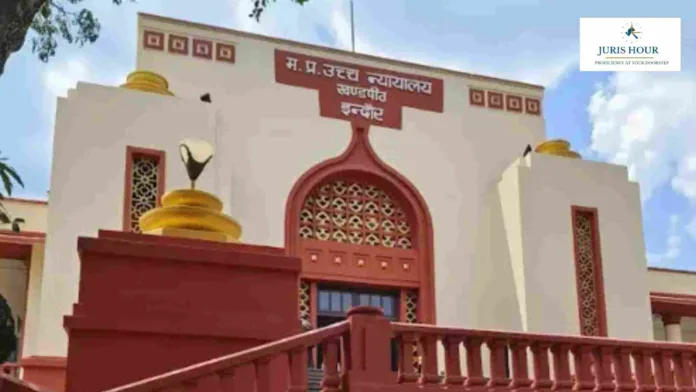The Madhya Pradesh High Court has held that though the SCN was detailed and exhaustive, containing findings of the Investigating Authority (DGGSTI), such findings were not final and could not bind the Adjudicating Authority.
The bench of Justice Vivek Rusia and Justice Binod Kumar Dwivedi has observed that has dismissed a writ petition filed by M/s Study Metro Edu Consultant Pvt. Ltd., an education consultancy firm, challenging a show-cause notice issued by the Directorate General of GST Intelligence (DGGSTI) over alleged non-payment of tax on intermediary services.
The petitioner/assessee company, based in Indore, provides Software as a Service (SaaS) solutions for student recruitment, offering advisory services to foreign universities as well as consultancy to students seeking admission abroad. While the company admitted its GST liability for services rendered to Indian students, it claimed exemption on services provided to overseas universities, treating them as “export of services” under Section 2(6) of the IGST Act, 2017.
The DGGSTI, however, issued summons, recorded statements of company representatives, and eventually served a show-cause notice dated 30 September 2023, classifying the firm’s activities as “intermediary services” under Section 2(13) of the IGST Act, thereby attracting GST liability in India.
The company argued that the proceedings under Section 74 of the CGST Act were futile, as the show-cause notice itself contained detailed findings, branding the company as an “agent of foreign universities.” Since the issuing authority had already expressed conclusive views, no fair adjudication could be expected from a subordinate officer like the Deputy or Assistant Commissioner.
The CGST Department countered that as per Circular No. 31/05/2018-GST, DGGSTI is empowered only to issue notices, while adjudication rests with the Executive Commissionerate in whose jurisdiction the taxpayer is registered. The apprehension that the adjudicating officer may be influenced by prior findings was unfounded, since observations in a show-cause notice are only prima facie and not binding. Established legal principles dictate that writ petitions against show-cause notices are generally not maintainable.
The High Court noted that though the notice was “exhaustive” and contained observations on the petitioner’s liability, these remarks could not be treated as final. The Investigating Authority and Adjudicating Authority are separate; hence, the latter is duty-bound to independently assess the case without being influenced by preliminary findings. The respondents had already assured that, if required, adjudication could be conducted by a higher-ranking officer such as an Additional or Joint Commissioner, ensuring fairness.
The bench clarified that if the petitioner formally applies, the adjudication may indeed be assigned to a higher authority, but otherwise it will proceed before the competent officer as per the 2018 circular.
Holding that no grounds for judicial interference existed, the Court dismissed the writ petition without costs. It emphasized that any merit-related observations in the notice would not prejudice the adjudicating authority during final determination of tax liability.
Case Details
Case Title: M/S Study Metro Edu Consultant Pvt. Ltd. Versus Joint Director And Others
Case No.: WRIT PETITION No. 30467 of 2023
Date: 05.08.2025
Counsel For Petitioner: P. M. Choudhary, learned Senior Counsel
Counsel For Respondent: Prasanna Prasad
Read More: Online Gaming May Face 40% GST

